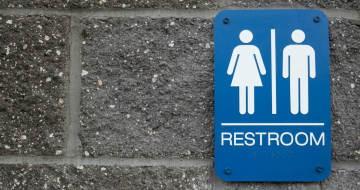

Employers should start preparing as the federal government considers a new transgender rights bill, a lawyer suggests.
The legislation, Bill C-16, would update the Canadian Human Rights Act to include gender identity and gender expression in the list of prohibited grounds for discrimination. It would also amend the Criminal Code to extend hate crime laws to crimes based on gender identity or expression.
Read: How to support transgender employees
Anneli LeGault, a partner at Dentons Canada LLP who has worked on transgender accessibility cases in the past, says employers should be aware of whether of their province already has explicit protections for transgender people.
Alberta, Newfoundland and Labrador, Nova Scotia and Ontario include both gender identity and gender expression in their human rights laws, while legislation in Manitoba, the Northwest Territories and Saskatchewan includes just gender identity.
LeGault predicts the federal bill will have the greatest impact on federally regulated employers, such as banks, airlines, railways, and telecommunications companies.
For employers that want to prepare, LeGault suggests they amend their harassment and complaint policies to cover transgender-specific issues, educate themselves and their employees and look at how they can change their organization to be more inclusive.
LeGault stresses employers should also assure their transgender staff they’ll keep matters confidential as it’s a “very, very private” issue.
“What you’re going to have to hear from the person, and you can’t tell them this, are the dates and timelines, like when are [they] going to want to use [their] new name and [their] new pronoun,” says LeGault. Important questions, she suggested, include: “What’s going to be your timeline for changing clothes and appearance? And then what’s your timeline for washrooms? When are you going to want this? . . . When are you going to tell your colleagues? How are you going to tell your colleagues?”
Read: China panel hears first transgender discrimination case
In terms of making the office space inclusive, many employers are already trying to create universal workspaces, a terminology used by designers who are trying to meet both accessibility legislation and the United Nations Convention on the Rights of Persons with Disabilities, according to LeGault.
Universal design can include washrooms and change rooms that accommodate wheelchairs, walkers and other disabilities and are unisex. Organizations can keep these design tenets in mind when renovating or changing their workspace, says LeGault.
Other considerations she recommends for a more “comfortable” space include accommodations for name plates, name tags and gender neutral uniforms. She cites airlines that allow flight attendants to wear pants as an example of a more neutral choice.
When it comes to transgender issues more generally, LeGault is hopeful for the future. While she acknowledges transgender people have “already suffered historically and [that] this is not an easy thing for them to come out at work,” she believes “Canadian employers are very accommodating and adaptive and they will deal with this as well.”
